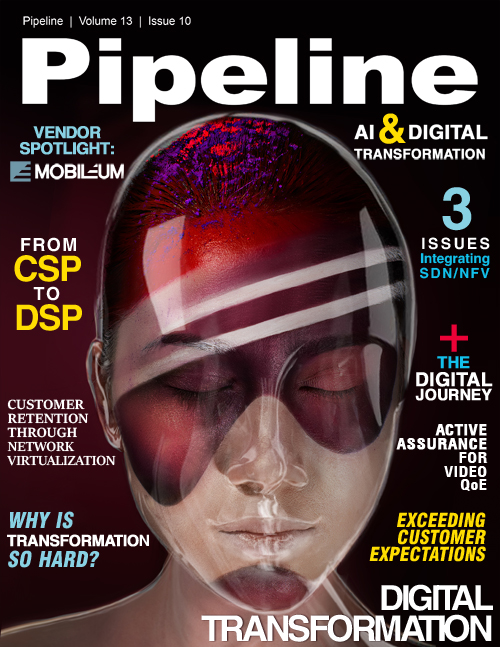CSP to DSP: More than a Name Change
By: Nancee Ruzicka

As the world goes digital, the role of Digital Service Provider (DSP) becomes decidedly different than that of a traditional communication service provider (CSP). Moving up the value chain to deliver the end-to-end, “put together” digital services that both businesses and consumers are demanding requires a cultural and operational shift that encompasses everything and everyone from the core of the network to the partners providing applications and content.
Numerous studies report that only 10-15 percent of digital services revenue will come from connectivity which makes the transition from CSP to DSP a necessity to protect and increase revenues. So, how do you transform an industry that has operated successfully for more than a century?
For CSPs, delivering digital services represents unprecedented opportunity combined with a nearly incomprehensible competitive operating environment. Today, any business can conceivably deliver digital services on top of any network infrastructure, yet the service providers that operate those networks are hamstrung by construction costs, operating expense and regulation.
Yet, for all the talk of digital services, only about one-third of the more than 120 service providers surveyed in a recent ICT Intuition study are truly committed and pursuing DSP transformation at this time. The remainder are considering it, studying it, making network upgrades or waiting to see what happens with regulatory and standards efforts.
We did find that 72 percent have established new business entities that divorce network operations from the digital services business but we have yet to see evidence that those new entities are operating any differently than the old ones. As anxious as customers are to buy and use digital services it is important to understand that the transformation underway from network operator to digital services provider cannot and will not happen overnight.
Bigger Than a Business Unit
There is more to becoming a DSP than creating a new business unit. Being a DSP means behaving like a retailer that can quickly and efficiently adjust to evolving markets and customer demands. It means selling and distributing products that are assembled from a constantly changing catalog of devices and applications from partners and suppliers. It means managing a supply chain rather than managing a network and distribution channels instead of direct sales. It means capturing and using the vast amount of data available to provide a consistent and high quality experience to every customer regardless of infrastructure or application.
Network infrastructure transformation is well underway and most challenges associated with implementing next generation networks are generally understood and being addressed. Business transformation is also getting underway and as CSPs begin the transition to DSPs, there is a dramatic strategic and operational transformation that needs to occur. Numerous surveys, including this one, indicate that the most significant barriers to becoming a DSP do not involve the network. Changing the culture and changing business processes, while managing costs and complying with regulators, creates a formidable task for these companies. So why do it?
Service providers indicate that retail and business customer demand as well as increased competition and the creation of new revenue streams are the driving forces behind the need to transform.CSPs often assume that digital connectivity is the same as digital services enablement. Connectivity is only a small part of the equation and DSPs need to go over the top and bundle offerings that incorporate all of the essential elements required to build and operate these services.
Thinking Outside the Network
Generally, it is assumed that becoming a full-service retail DSP will require a diverse set of global partners to provide applications, IT infrastructure, global coverage and support. Yet, only 33 percent of the operators surveyed indicated they have completed a business-wide DSP strategy and only 30 percent have a fully developed partner strategy. For DSPs, owning all of the layers of the digital ecosystem would be expensive and take much too long to develop. The alternative is to leave specific technologies, services and expertise to those most able to provide them and become the digital services integrator and operator.
A previous ICT Intuition survey of over 1000 business leaders revealed that 71% want to sell connected services and 95 percent of those want to partner with a DSP to do it. And most businesses have no desire to operate those services so the role of system integrator and digital services operator favors DSPs.For business customers; digital services have to be easy to buy, easy to use and easy to pay for. But that hasn’t happened yet.



















